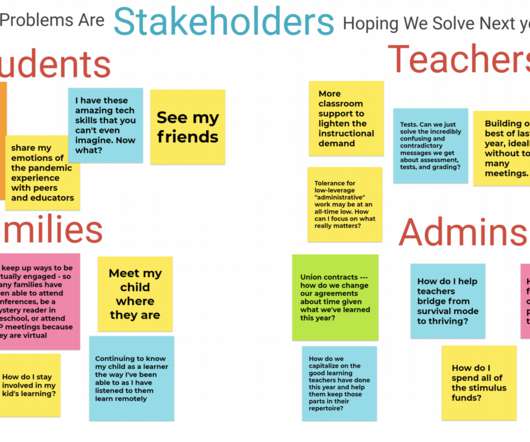Think Like an Urban Planner to Create Successful Online Learning Communities
Fractus Learning
AUGUST 15, 2016
But often, when we try to create community online through discussion forums or social media, our efforts fall flat. To avoid this, start thinking of your online community as a mega-city and yourself as an urban planner. You need both city-wide and neighborhood-level community strategies in order to succeed.

















Let's personalize your content